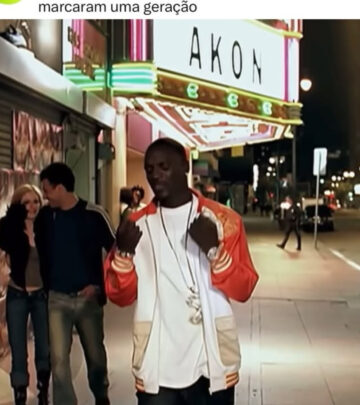Bhumi Pednekar’s Activism Inspired By Rang De Basanti
Iconic film’s whisper inspires her blend of activism, passion, and celebrity style. Indeed

Image: Instagram
Bhumi Pednekar’s recent words have set social media abuzz, as she reflected on the formative impact of the iconic film Rang De Basanti. In a candid statement, the actress and activist shared, “I would like to credit some part of my activism to Rang De Basanti. That film deeply impacted me as a teenager and a lot of who I am…” Her heartfelt confession not only underscores the film’s enduring legacy but also reveals how cinematic experiences can mold personal ideals and encourage social change.
A Cinematic Awakening
It is not every day that a celebrated actress comes forward to discuss the roots of her activism. Pednekar’s affinity for Rang De Basanti, a film that challenged the status quo and sparked youth-driven movements, resonates with many who see art as a powerful catalyst for change. The film, which has long been lauded for its vibrant narrative and portrayal of youthful rebellion, clearly left an indelible mark on her psyche. This is a testament to how the magic of cinema can inspire real-world actions and guide personal philosophies.
The conversation takes on added significance when examining Bhumi’s journey in Bollywood. Coming into prominence not just as a talented actress but also as a socially conscious figure, she often uses her public platform to highlight stories that matter. In her recent statement, she attributes a significant part of her own activism to the lessons learned while watching Rang De Basanti, reflecting on how the themes of hope and resistance in the film helped shape her perspective during her formative years.
Style, Substance, And Social Impact
Accompanying the statement is a well-curated visual presentation that captures Bhumi in a striking ensemble. Meticulously styled by Meagan Concessio—with a shirt from Zalora Studios, layers from MANGO, and a blazer by Dorothy Perkins—the look is a perfect blend of high fashion and understated elegance. Details such as a skirt from Adidas Originals and accessories by Boss and Guy Laroche further accentuate her unique celebrity style. The appearance, documented by photographer Tejas Nerurkar and produced under the Filmfare banner, is a visual echo of her story: a fusion of personal conviction, contemporary aesthetics, and cinematic homage.
Over the years, Bhumi Pednekar has been known not only for her film roles but also for her firm stance on social issues. Her participation in discussions about the state of the film industry and her heartfelt commentaries—such as sentiments on declining theatre footfalls in the pandemic era—underscore a career that interweaves art with meaningful advocacy. The authenticity in her voice, combined with her ongoing commitment to causes that matter, makes her a respected figure in both cinematic and social realms.
A Legacy Beyond The Screen
This narrative is not isolated to a single moment. Bhumi’s earlier posts reveal her admiration for trailblazing directors like Sanjay Leela Bhansali and Karan Johar. In one memorable Instagram caption, she expressed how transformative working with master directors has been, illustrating that her cinematic journey is replete with influences that continue to inspire her creative and activist pursuits. Such reflections further reinforce the idea that art—when true to its essence—can cultivate a spirit of resilience and change within an individual.
The story now finds its broader context within the legacy of Filmfare. Long celebrated in cinema history, Filmfare’s platform has often been a meeting ground for stories that traverse the boundaries between art and activism. In Pednekar’s case, her reference to Rang De Basanti goes beyond a mere nostalgic remembrance; it is an acknowledgment of the film’s power to transform mundane experiences into a source of activism and hope for the future.
Bridging Cinema And Activism
By crediting Rang De Basanti as a catalyst for her own social engagement, Bhumi Pednekar reminds us of the intimate bond between film and the real world—a relationship where the stories on screen often outlast their runtime through the lives they touch. Her statement encourages a dialogue on how movies can serve as blueprints for personal growth and collective action. The merging of her on-screen presence with off-screen activism makes her an exemplary figure for audiences who look up to celebrities not just for entertainment, but also for inspiration and social guidance.
In the end, Bhumi Pednekar’s candid revelation about her journey signifies more than just a personal milestone. It highlights a broader cultural phenomenon where films such as Rang De Basanti continue to inspire generations. Her thoughtful reflection acts as a reminder that the narratives we consume can ultimately propel us to challenge injustices and strive for a better society. This blend of glamour, grit, and genuine activism sets a benchmark in an industry where the personal often intermingles with the political in captivating ways.
Read full bio of Glendon Moss





















